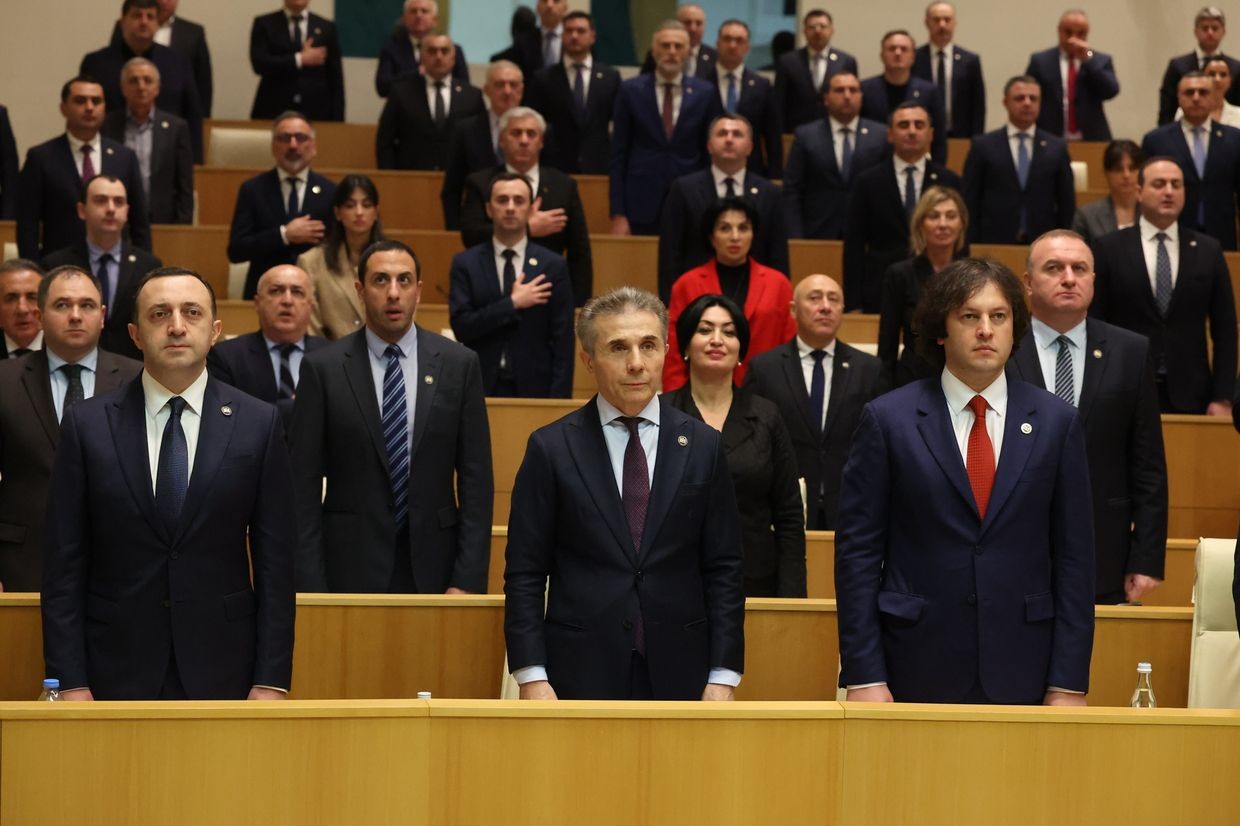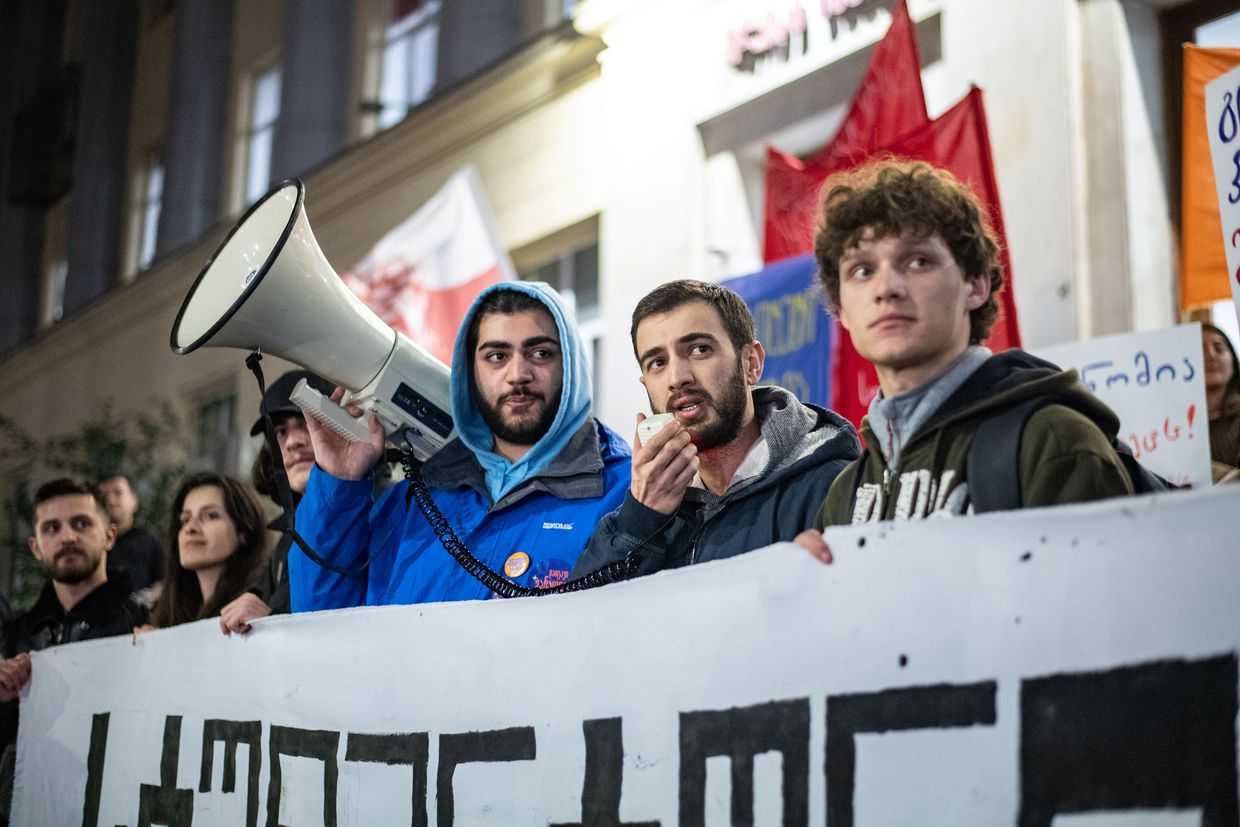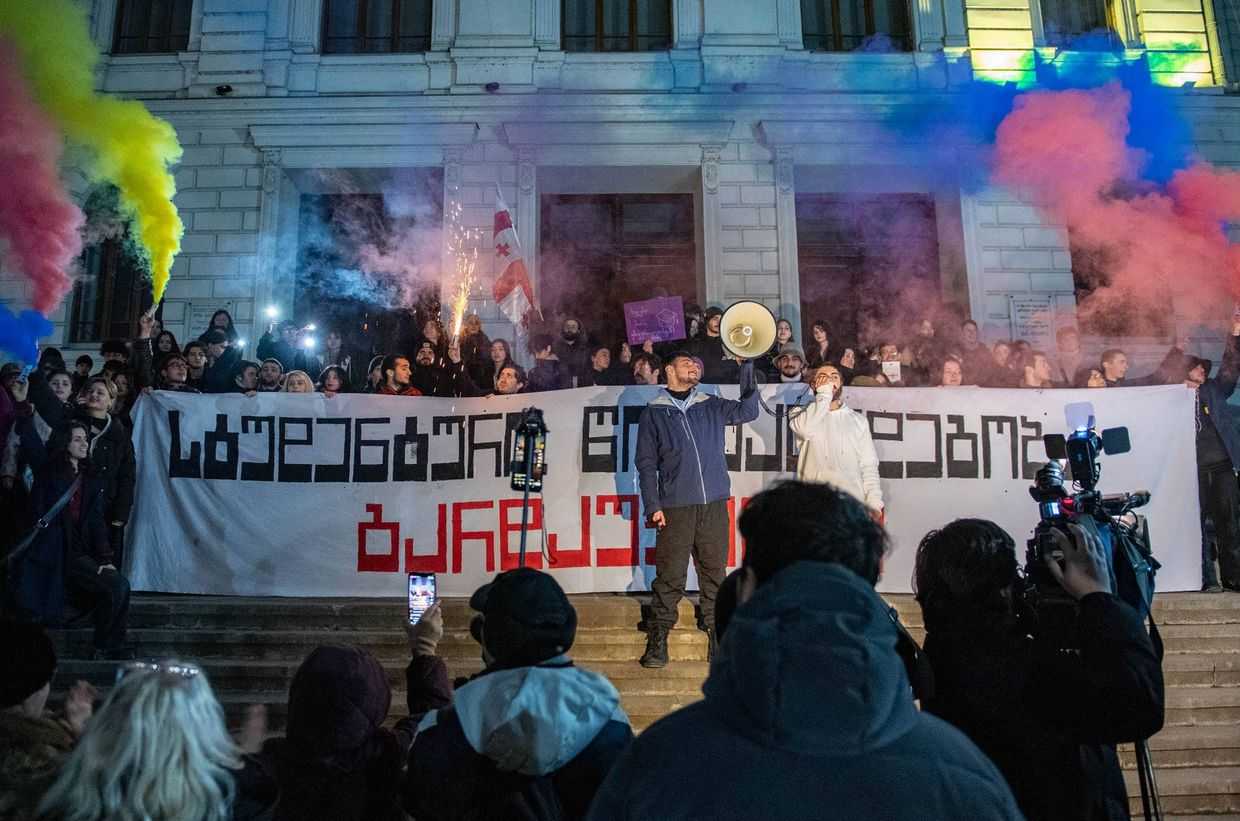
Georgian Dream has passed the final reading of the ‘Georgian version of the US Foreign Agents Registration Act (FARA)’ as well as a series of amendments to the broadcasting law, targeting civil society and media organisations. This is part of a series of recently introduced and adopted laws by the ruling party that are widely seen as a threat to democracy in the country.
FARA, which would replace the controversial foreign agent law adopted in May 2024, is touted by the ruling party to be an exact translation of the American law. The ruling party justified the need to replace the existing law by stating that a large number of targeted organisations refused to comply with it.
Under the new law, a foreign agent is defined as any person (legal or physical) who is under the control of, or acts at the direction of, a foreign power and acts in the interests of that foreign power. This means that, unlike the previous law, the law passed on Tuesday will also affect individuals.
Failure to comply with the law can be punishable by up to five years of imprisonment, a fine of up to ₾10,000 ($3,600), or both.
FARA was originally enacted in 1938, in the lead-up to World War II, when the US was facing sustained threats of foreign influence from Nazi Germany and the Soviet Union, which were both considered to be hostile powers.
However, until US President Donald Trump’s first term in 2017, it was rarely employed beyond being used to force foreign lobbyists to register. Indeed, between 1988 and 2018, the US Department of Justice only brought 10 criminal FARA cases against 11 organisations and individuals.
Critics have repeatedly pointed out that the aim of the US law has not been to target civil society and media organisations, something that Georgian Dream is doing by invoking just the text of FARA, without taking into account US judicial practices.
The final version of the law removed terms such as ‘the Library of Congress’, ‘the ‘Secretary of the Treasury’ and other terminology that Georgian Dream had directly copied from the US law in the initial version to prove that the translation was 100% accurate.
In addition to FARA, the ruling party also passed two restrictive media bills amending the Broadcasting Law.
The first would allow Georgian Dream to impose ‘coverage standards’ on broadcasters. The second sought to regulate broadcaster funding by prohibiting them from receiving foreign financing.
In addition to these laws, Georgian Dream has also passed several other pieces of legislation that had been previously initiated, including reintroducing the concept of treason into the Criminal Code, removing the word ‘gender’ from all laws, and excluding civil society organisations from official decision-making processes.
Georgian Dream has repeatedly claimed that the new bills are necessary to fight the ‘influence of external powers’. Nonetheless, critics of the ruling party have emphasised that these changes aim to undermine media and civil society in an already fragile democracy.
The restrictive laws are being passed in a parliament where opposition is virtually nonexistent. Following the disputed 2024 elections, opposition parties refused to participate in the legislative process.Since then, the ruling party has been initiating and passing new restrictive legislations without any obstacles, targeting the media, civil society, and other critics.
Correction: The original version of this article stated incorrectly that failure to comply with the law would be punishable by imprisonment and/or a fine of up to $10,000. The law provides for imprisonment and/or fines of up to ₾10,000 ($3,600).











